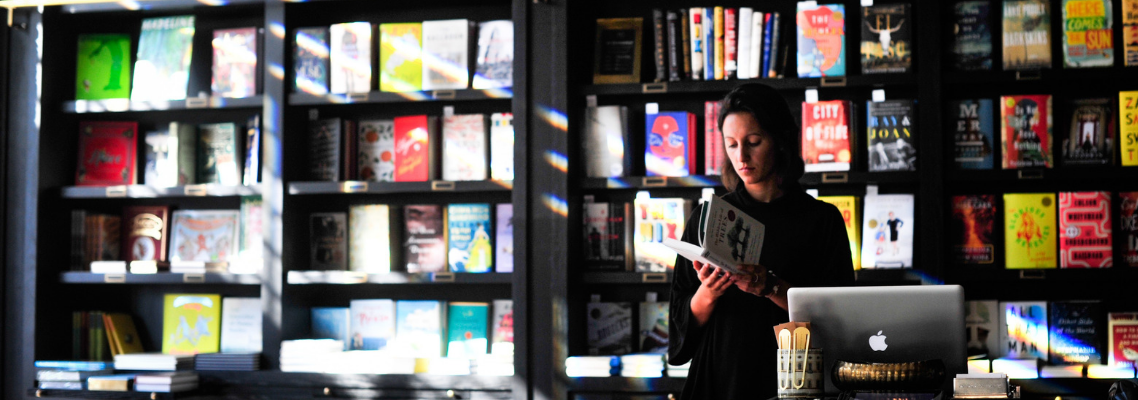What a journey it has been for James Daunt from opening a single shop, Daunt Books for Travellers, in 1991 to now, after last week’s seismic news, running 927 bookshops, comprising 627 Barnes & Nobles, 293 Waterstones (including, of course, stores in Dublin, Brussels and Amsterdam), and 7 Foyles, not forgetting ownership of nine Daunt Books and three further independents which are part of the Daunt chain. It could be said that James Daunt is western bookselling.
And if anything was a ringing endorsement of the future of physical bookselling, then surely the acquisition of Barnes & Noble for approximately $683m (£537m) by Waterstones’ owners New York hedge fund Elliott Management is it.
In fact, in the days before the deal became public, physical books and physical retailing were receiving endorsements at BookExpo in New York. In his final report as CEO of the American Booksellers Association (ABA), Oren Teicher noted that while retail still faces many challenges, it can offer readers something that internet competition cannot. “They can sell an experience, they can sell a connection to their community, they can sell a knowledge and passion about books that goes beyond reading itself.”
Teicher departs the ABA on a positive note. He said that last year the ABA saw 99 new indie bookstore members open for business, a 32% increase over 2017, and added that they were recording higher profits too. “Based on the data we get every week from NPD BookScan, sales for 2018 among ABA member stores increased nearly 5% over 2017, and the compound annual growth rate in the indie bookstore channel over the past five years is a very healthy 7.5%.”
In a state of the nation session, Madeline McIntosh, CEO of Penguin Random House US, said the company recognised that readers want “authentic engagement” and was investing in non-author events that bring readers together in bookstores. “The bookstore feels like a really good, safe place to do that,” she said, adding there was now a more collaborative relationship between publishers and retailers, and that sales reps were an important of this.
Sourcebooks publisher and CEO Dominique Raccah said that a decade ago she expected “YA was going to flip and that the whole category was going to be 70-80% e-books because these kids are all on their devices all the time. [But it turns out] YA is 25% e-books max.”
However, before the love-in became too great, there were grumbles from indie booksellers at the ABA’s Town Hall meeting about increased direct-to-consumer marketing efforts by publishers. Matt Norcross of McLean and Eakin Booksellers in Petoskey, Michigan, said: “It’s undermining us, confusing the customer, and not doing a darn thing to hurt Amazon.”
Still with indies, their importance to publishers was cited at a BookExpo session on translation. Atria Books vice president and editor-in-chief Peter Borland said indie bookseller support was part of the reason Fredrik Backman’s A Man Called Ove was such a success. “From day one, the book flew off the shelves at indies. Word-of-mouth is the one thing we know that sells books.”
There has been good news concerning physical bookstores in Germany too. According to data supplied by Media Control and reported in Buchreport, sales through high street bookshops were up 3% for the first five months of 2019. Alexander Skipis, CEO of Germany’s booksellers’ trade body, the Börsenverein des Deutschen Buchhandels, said that customer footfall increased in 2018 over the previous year leading him to hail 2018 “a watershed in the German book industry”. He was gratified too that there was a rise in customers aged 20 to 29, proof that there was “an increasing awareness” in the industry of the need for new ways of attracting customers. “These include new store concepts, creative event formats, social media initiatives, new storytelling formats and innovative publishing programmes”, he said.
But there is less happy news from Turkey where prosecutors have launched investigations into the country’s fiction writers, including award-winning novelist Elif Shafak who has called on the international community to support Turkish authors, journalists and academics. The authors are accused of condoning practices they wrote about in their novels, such as sexual violence. English PEN director Antonia Byatt said the organisation was “deeply concerned” about the threats to Shafak. “Freedom of expression in Turkey is increasingly under serious threat. Too many writers are in prison whilst others have been forced into exile.”
Finally, there were inspiring words from Penguin Random House CEO Tom Weldon at the company’s annual conference. “We are creating books for our society for generations to come. As trust in politicians, businesses and the media continues to decline we have the opportunity to shape policy, culture and society. We are a proudly commercial company with a social mission at our heart [and] we are prepared to use our voice to campaign on behalf of what matters to us whether that’s freedom of speech, inclusion or literacy.”

Roger Tagholm writes our Snapshot of the Week.

